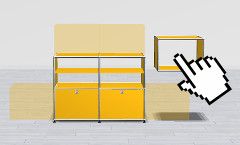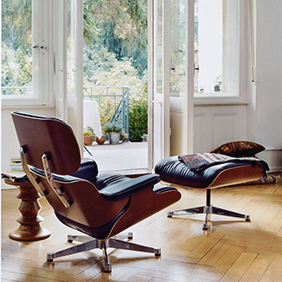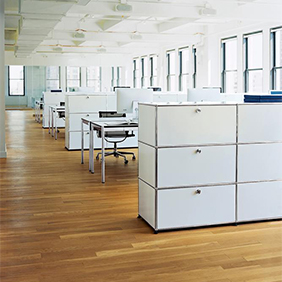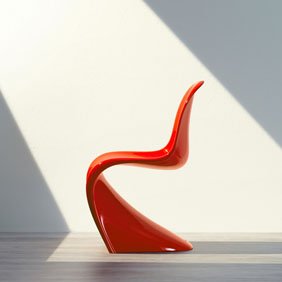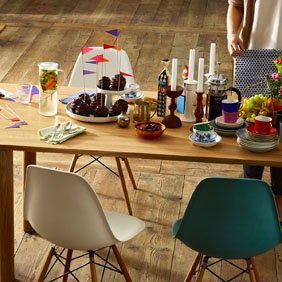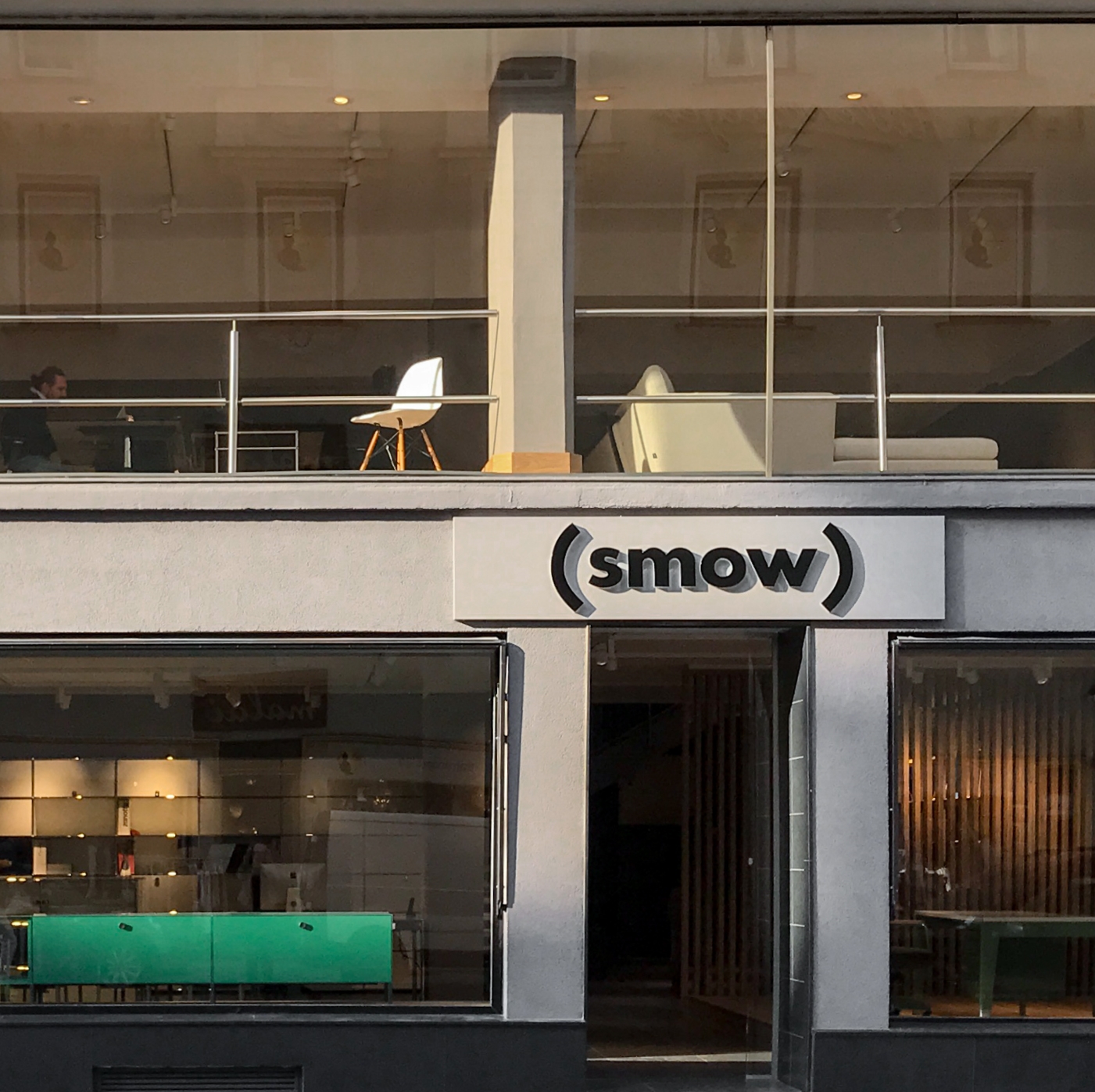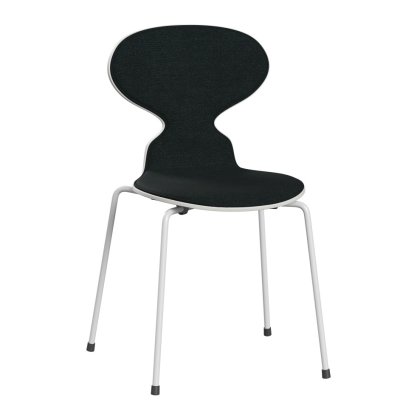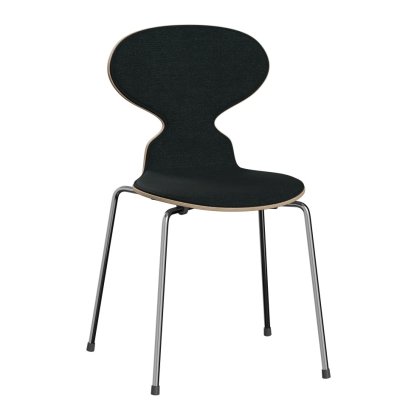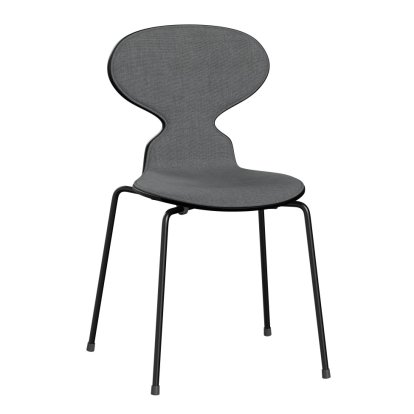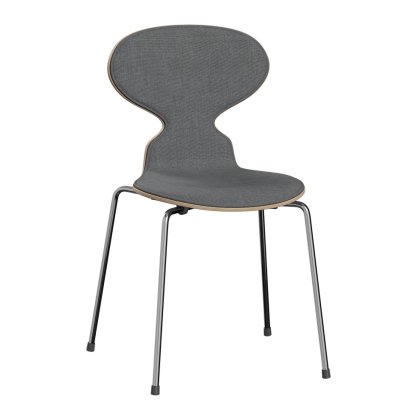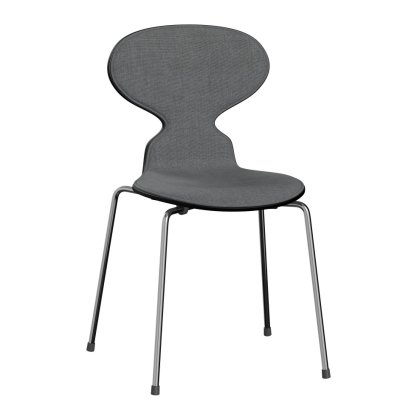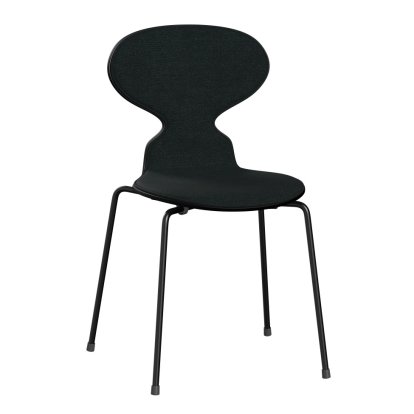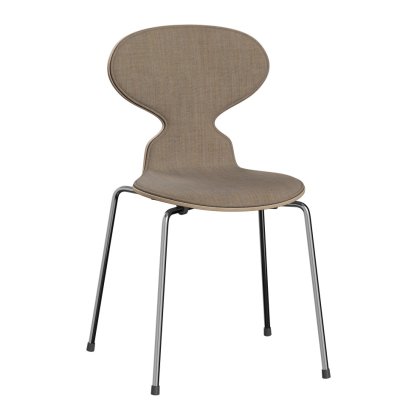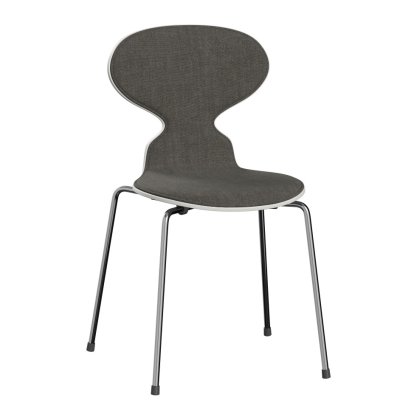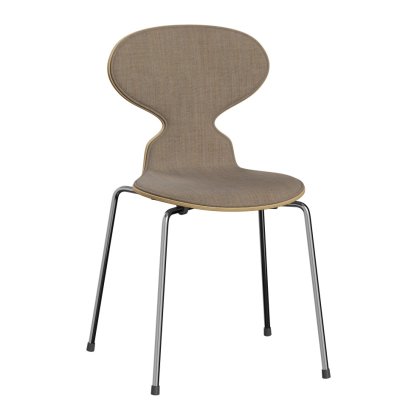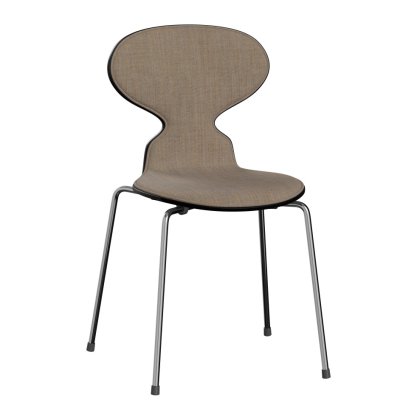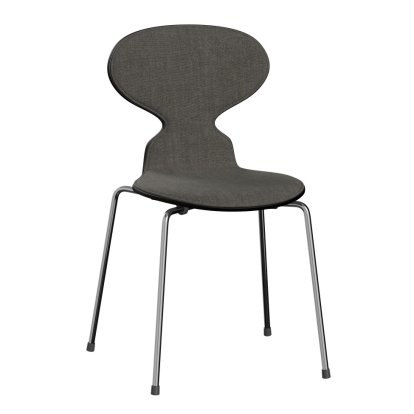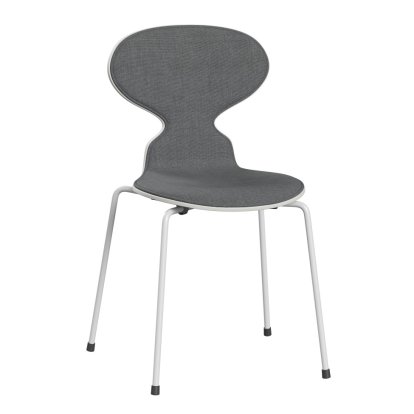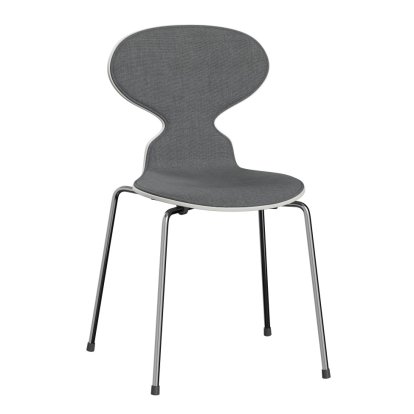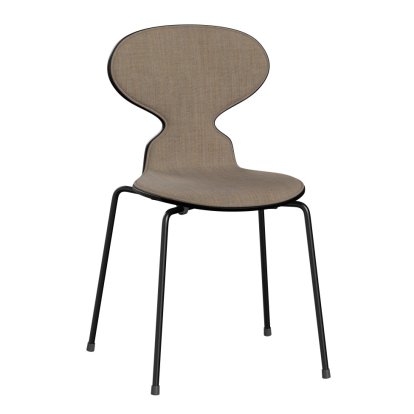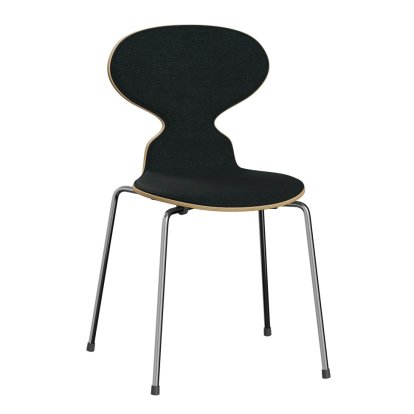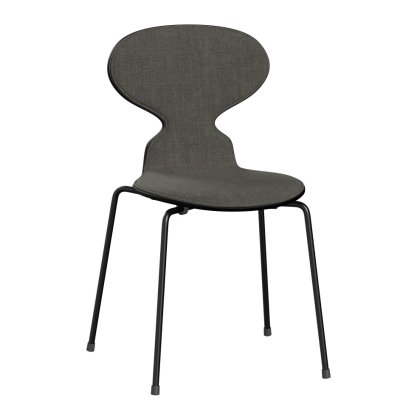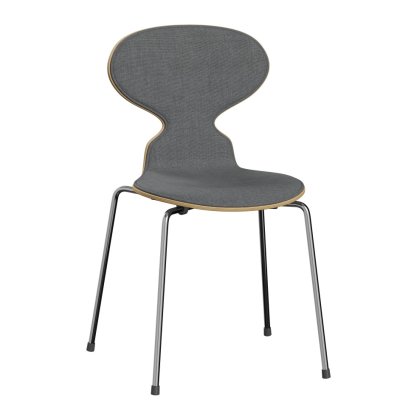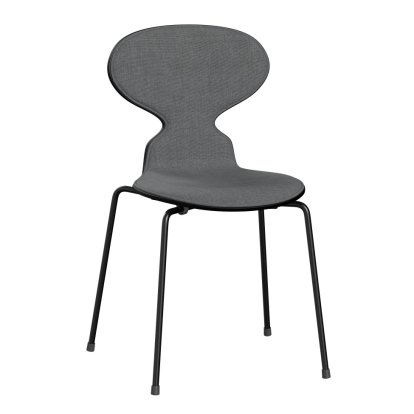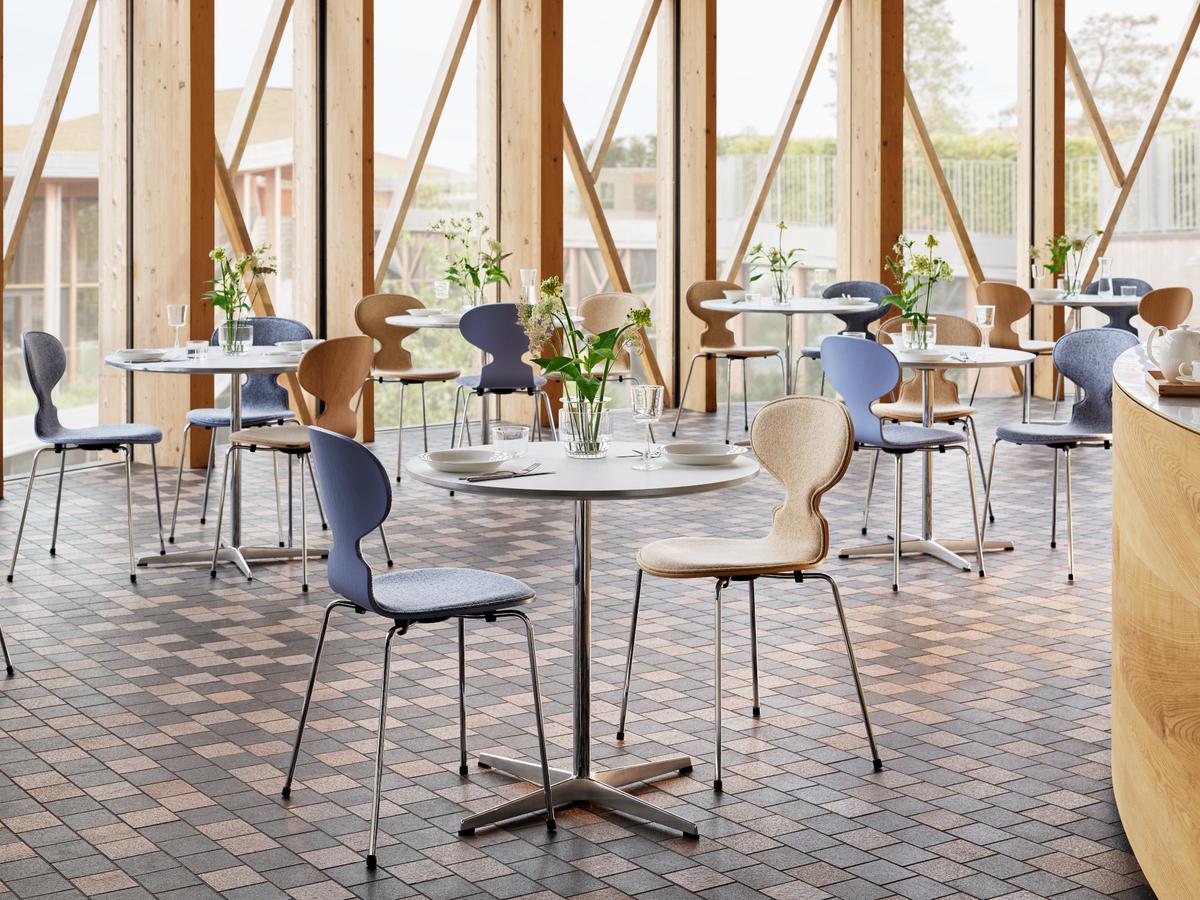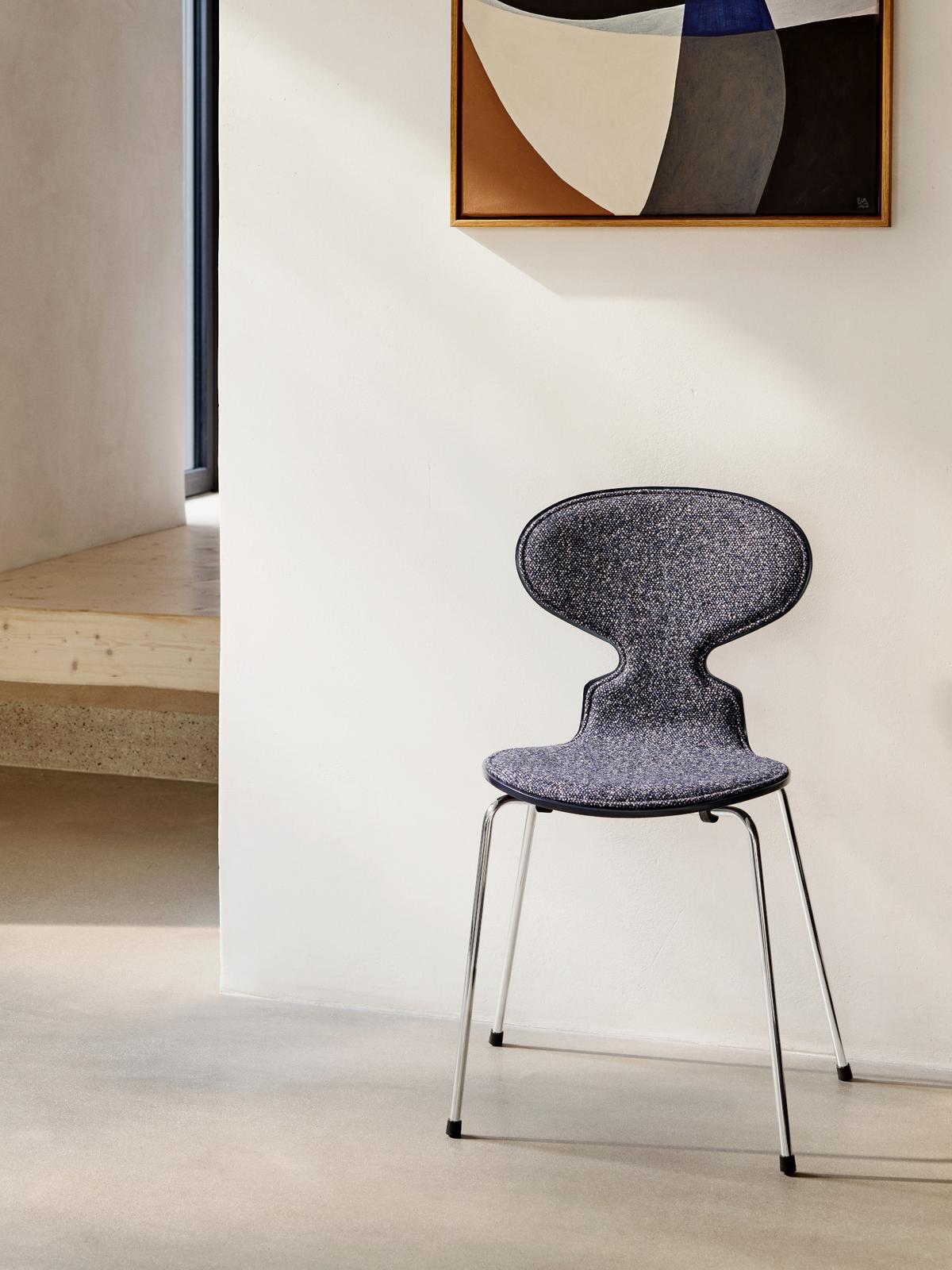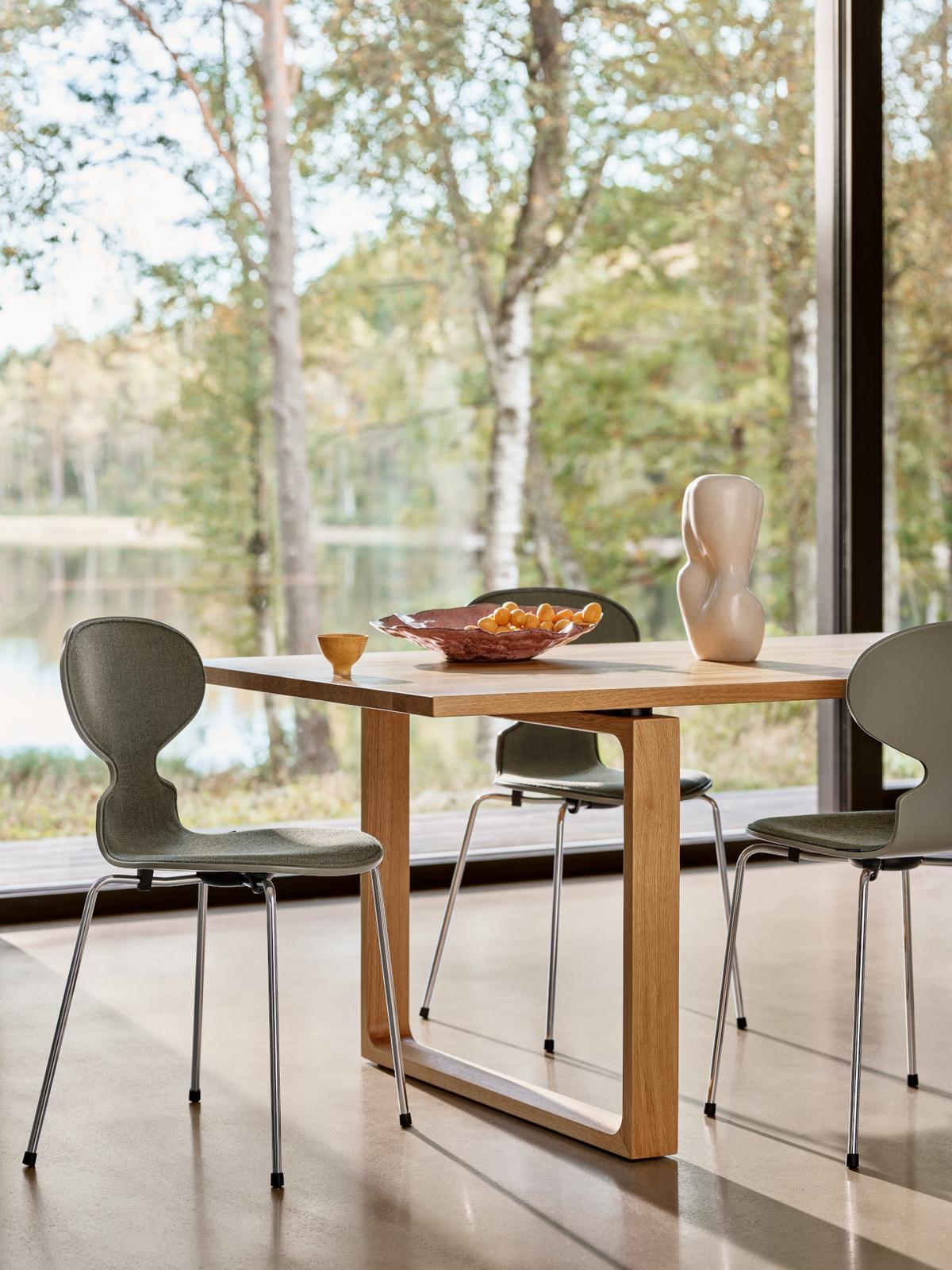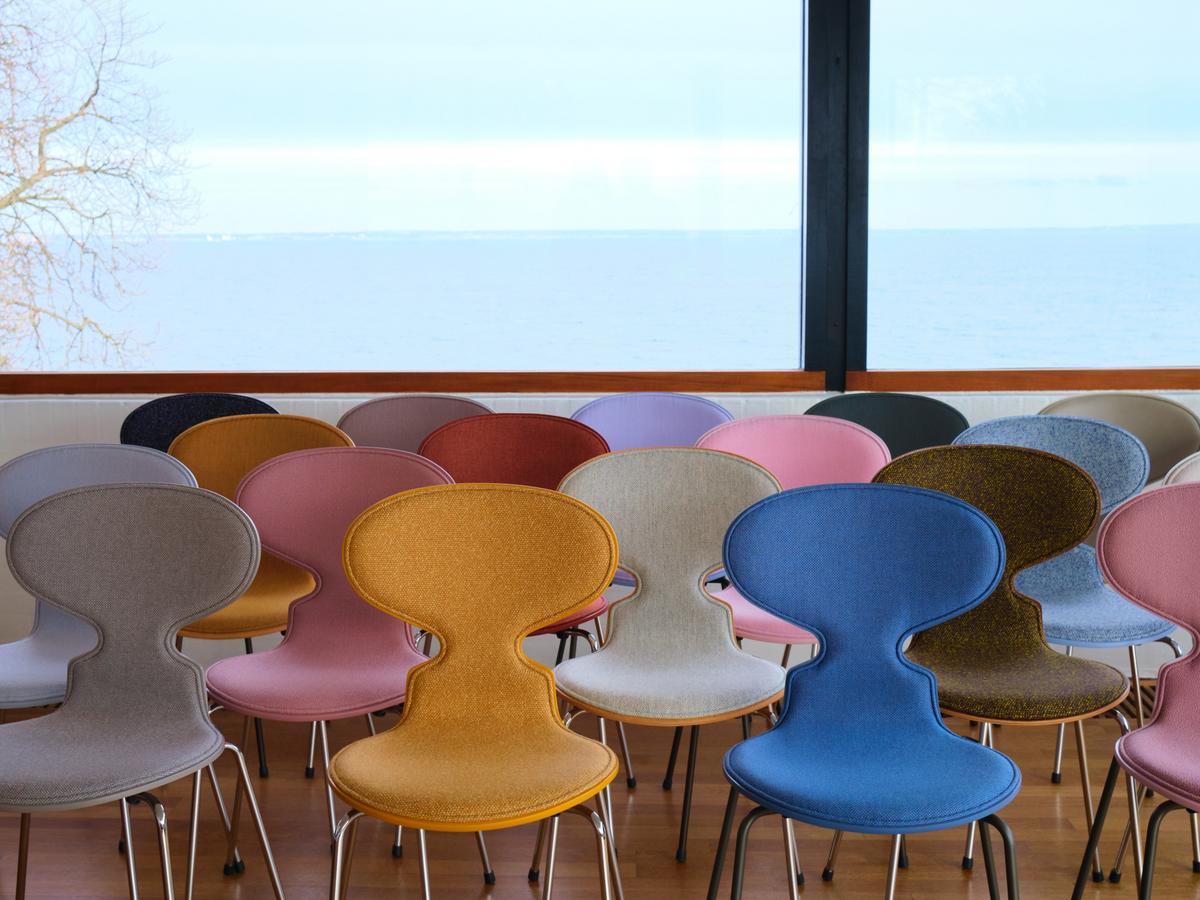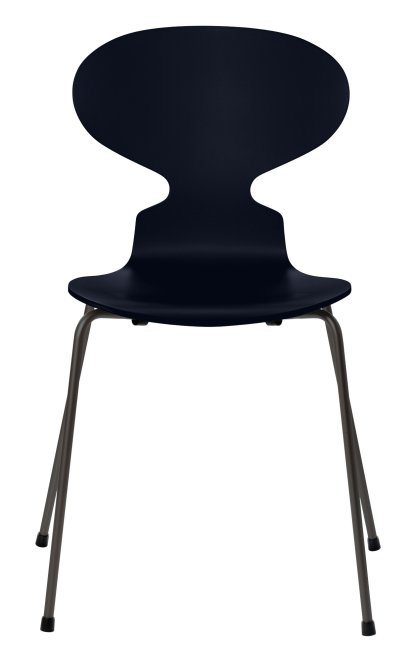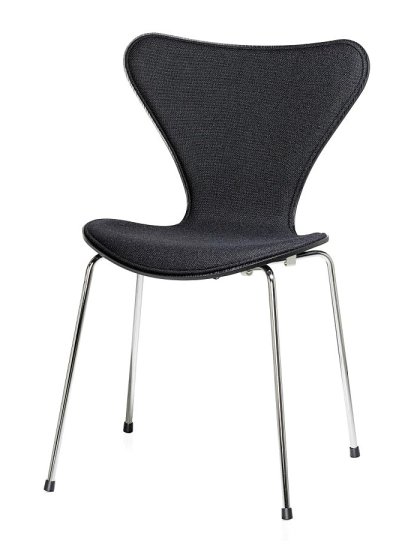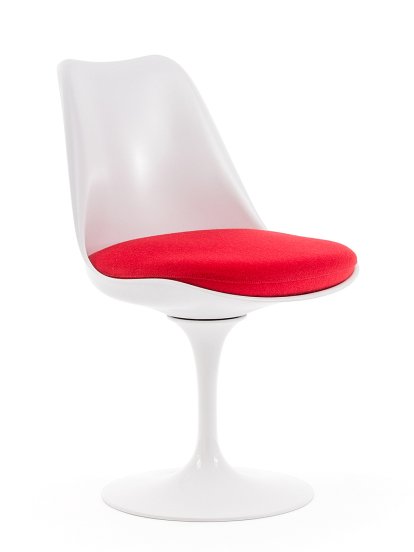Ant Chair 3101 with Front Padding
by Arne Jacobsen, 1952/2023 — from CHF 591.00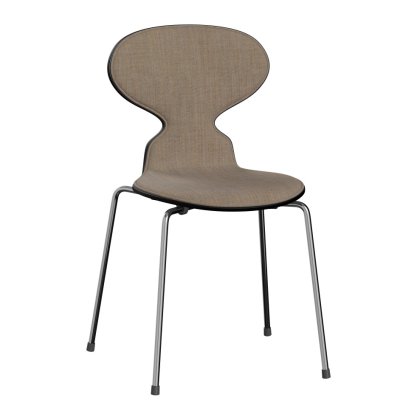
has been added to your wishlist.
Details
| Product type | Multi-purpose chair |
| Dimensions | 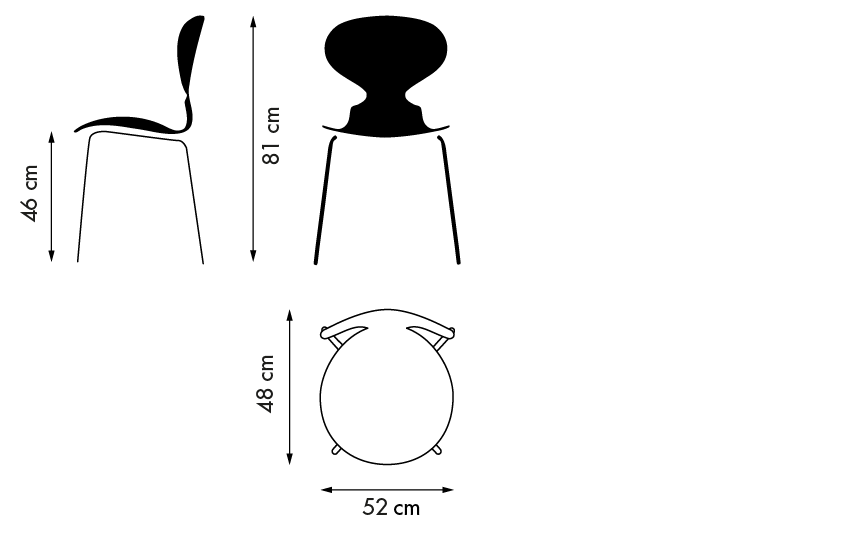 |
| Weight | 4,1 kg |
| Colours | Lacquer  Dyed ash   Clear lacquered    Remix     Frame    |
| Material | Seat shell: moulded veneer / core veneer: beech / top veneer: various woods (ash, beech or walnut) Covers: Remix (90% virgin wool, 10% nylon) Frame: tubular steel, chrome-plated or colour powder-coated |
| Variants | Also available without upholstery as the Ant 3101 with natural wood veneer or the Ant 3101 New Colours. |
| Function & Properties | Upholstery firmly glued to the seat shell Stackable up to 6 chairs With universal glides |
| Care | Fabric: Vacuum regularly with an upholstery nozzle. Remove fresh stains immediately with an absorbent, lint-free sponge cloth. For difficult stains: Carefully brush out dry dirt with a soft brush. Depending on the substance of the stain, solvents may necessary, in which case always consult a specialist before proceeding. Wood: Remove stains and liquids as soon as possible with plain water and rub dry with a soft cloth to avoid water stains. If necessary, use a mild cleaning agent, avoid scouring agents and abrasive substances. Metal: A regular dusting with a soft, dry cloth is sufficient. You can also clean chrome-plated steel with a soft cloth and a mild cleaning agent. Never use cleaning agents containing chlorine or acids and do not use scouring, abrasive substances. |
| Certificates & Sustainability | EN 13761, EN 1728, BS 4875 certification of strength/durability The Ant can be dismantled into its individual parts for recycling purposes |
| Warranty | 10 year cover against manufacturing defects (registration on MyFritzHansen not necessary) Normal wear and tear are excluded from the warranty! |
| Datasheet | Click for more information (ca. 1,3 MB).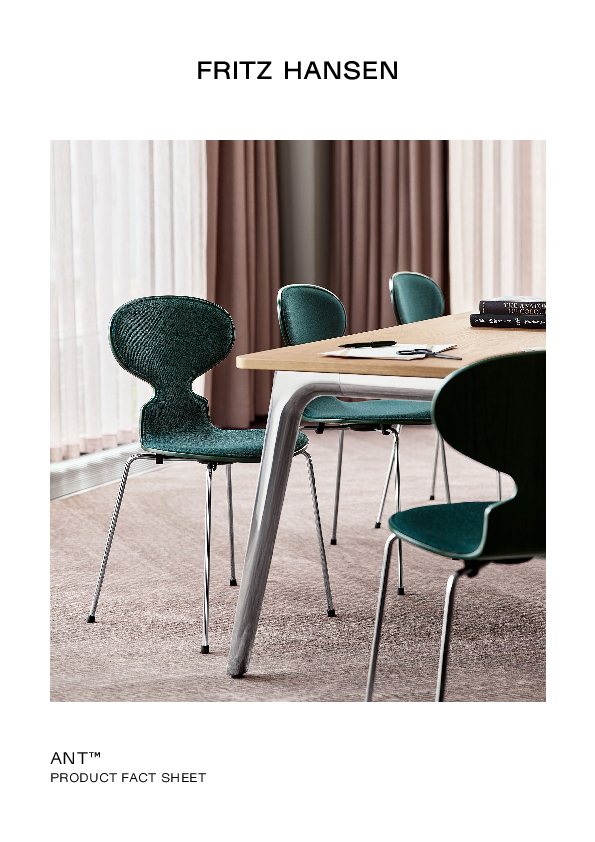 |
Design Story
Design
The Ant chair was developed by the architect and designer Arne Jacobsen in 1951 for the canteen of the pharmaceutical company Novo Nordisk and went into production at Fritz Hansen a year later. Jacobsen was inspired by the shape of an ant with its head raised, something reflected in the narrowing in the lower section of the backrest. The Fritz Hansen chair owes its minimalist, elegant appearance to the seat shell, which is made from a single piece of bent veneer plywood. The process of gluing layers enhances the natural properties of the wood and ensures elasticity and comfort, as the seat shell adapts to the movements of the user. The comfortable, stackable and comparatively light all-purpose Ant chair is also suitable for seating events in larger rooms. Originally the Ant chair was produced with a three legged base, but today the variant with four legs, the Arne Jacobsen Ant 3101, is more common. The original Ant 3100 design is however still produced by Fritz Hansen.
Manufacturing
Fritz Hansen's production site is located in Allerød north of Copenhagen. Amongst the most convincing seal of quality for the Fritz Hansen chairs is the almost 70 years of experience in their production. The seat and back of the Ant chair consist of a single shape. This is made from nine layers of veneer that are cut, glued and pressed into the shape; Fritz Hansen has always used beech wood as the core veneer, and a selection of different clearly varnished woods is used as the top veneer. After the seat shell has been completed, it is connected by hand to the chrome plated tubular steel frame. Every single Ant chair goes through strict quality controls at Fritz Hansen, a control process which goes far beyond national and international guidelines and specifications. Fritz Hansen also undertakes to make a voluntary contribution to sustainable development and makes this transparent for its customers in the form of an annual, publicly accessible Corporate Social Responsibility report.
Designer
Arne Jacobsen, whose work has often been compared to Mies van der Rohe's or Charles Eames’, cannot be ignored when it comes to modern design and modern architecture. Jacobsen, who was born in Copenhagen in 1902, already drew passionately from nature as a child and initially trained as a stonemason before studying architecture at the Royal Danish Academy of Art, graduating in 1927. His previous sculptural training and his special connection to nature were later to be clearly reflected in his sculptural furniture designs. Jacobsen created his first furniture designs for one of his first architectural projects, the so-called "House of the Future", which he designed in collaboration with the architect Flemming Lassen. He was to take this approach to extremes in one of his most famous buildings, the SAS Royal Hotel in Copenhagen, which was completed in 1960: Jacobsen was not only responsible for the architecture, but designed everything within the hotel, from the furniture to all fixtures and accessories himself. Some of his most legendary designs such as the Egg Chair or the AJ Lamps can be traced back to the interior design of the SAS Royal Hotel.

